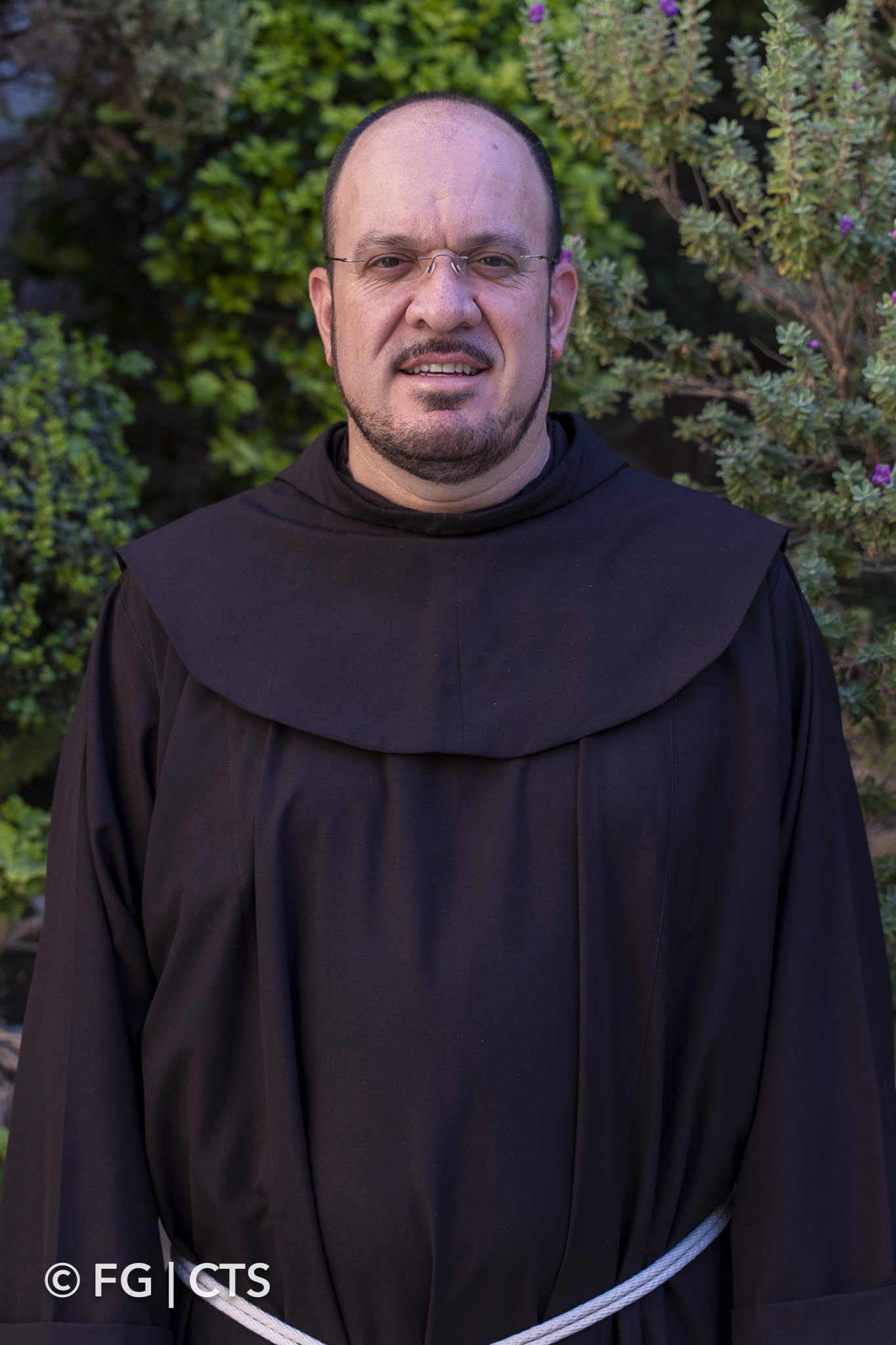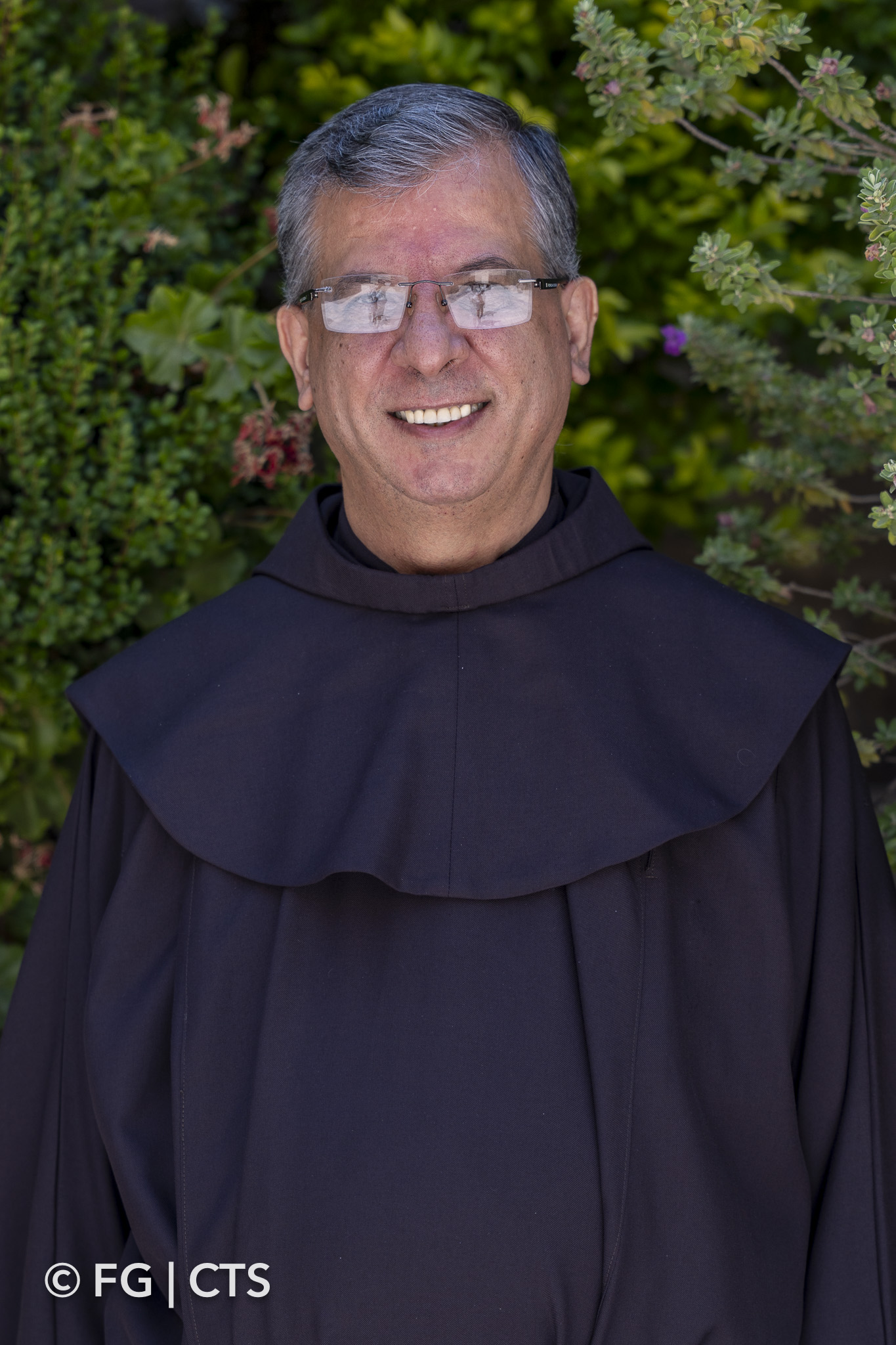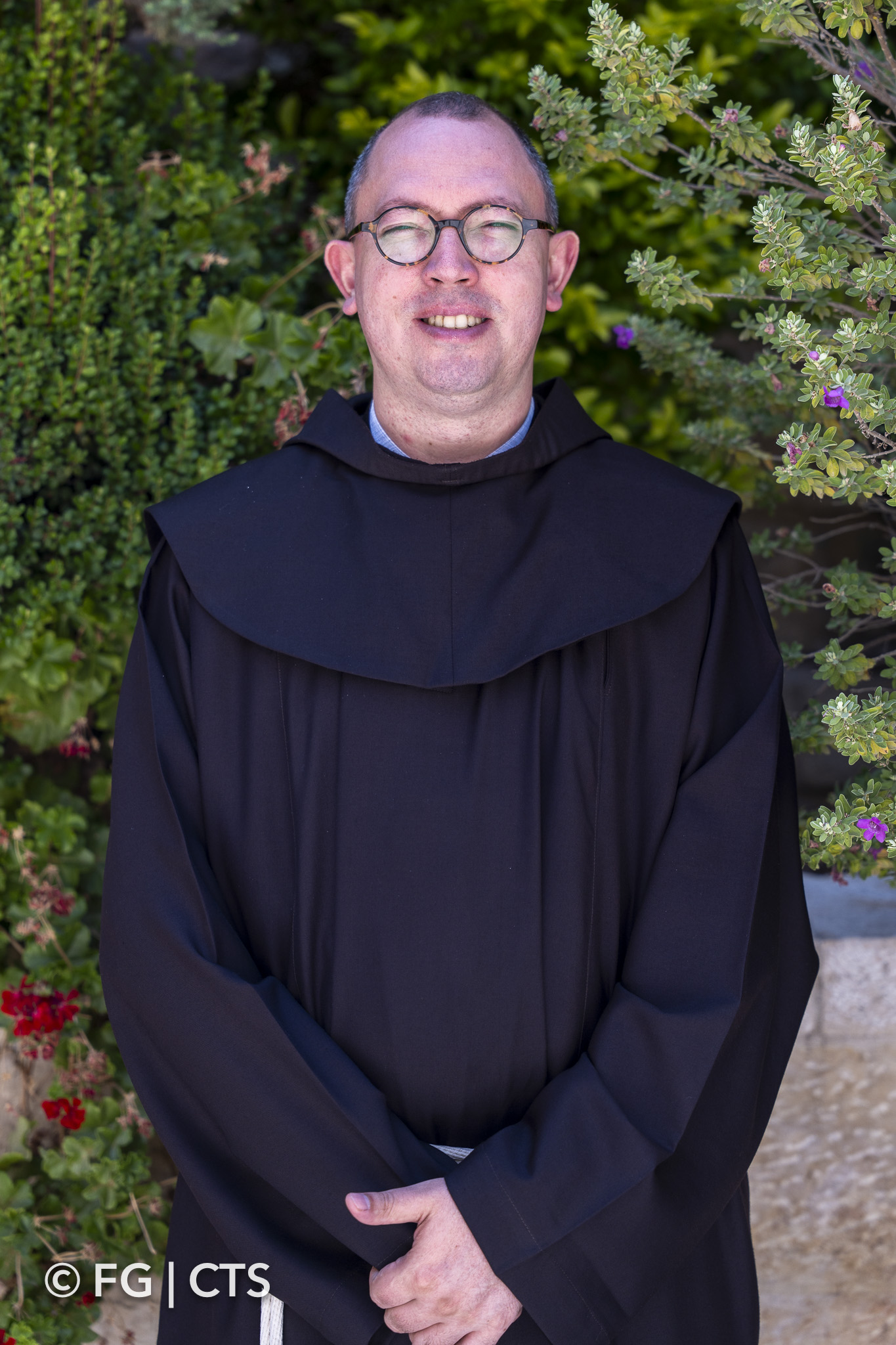The Custodial Curia, headed by the Custos of the Holy Land, brings together all of the services of the Custody of the Holy Land allowing it, wherever it is present, to live out its vocation in order to welcome pilgrims, serve the poor, carrying out local ministry and to guard and carry out the liturgical life of the Holy Places.
It represents all of the friars, both in local church life, and with the Catholic priests of the Holy Land, and through ecumenical relations and dialogue with other religions. Furthermore, it centralizes financial services, social assistance and communication (six magazines, a printing shop, a multimedia production center, the Christian Media Center and a website), all administrative services related to the friars (from training to appointments, to procedures to obtain visas). The Curia maintains relationships with the General Curia of the Franciscan Order and every monastery of the Custody of the Holy Land in the Middle East (Cyprus, Egypt, Israel, Jordan, Lebanon, Palestine, Syria) and those places around the world that fall under its direct jurisdiction (Argentina, Greece, Italy, Spain, are United) and the 66 Commissariats and 31 Deputy Commissariats of the Holy Land that are present in 51 countries.
The religious and official ceremonies give the different components of the Curia a very solemn appearance, but day in and day out, it works to serve the Holy Land and to help to welcome pilgrims. In recent years, several members of the Curia and other friars or lay people delegated to this task, welcomed thousands of pilgrims to St. Savior's, highlighting the current realities of the Custody, its work in the Holy Land and transmitting the “grace” of the Holy Places, in which Christianity's spiritual roots can be found.
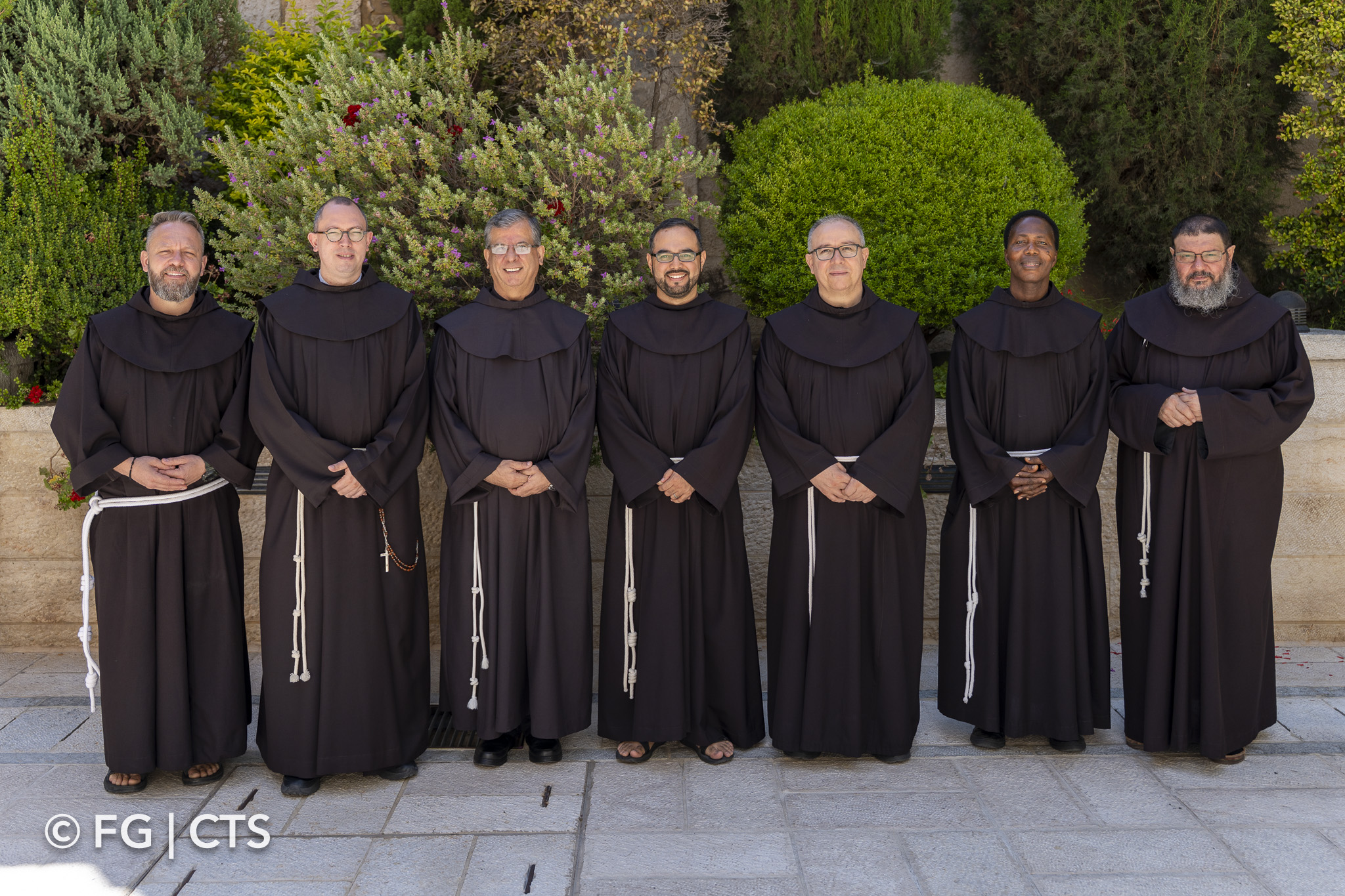

The Custos of the Holy Land is the Minister Provincial (i.e. the major superior) of the Friars Minor living throughout the Middle East. He has jurisdiction over the territories of Israel, Palestine, Jordan, Lebanon, Egypt (in part), Cyprus and Rhodes without counting the numerous houses or Commissariats in various parts of the world (worth mentioning are those in Rome and Washington).
The Custos of the Holy Land is the Minister Provincial (i.e. the major superior) of the Friars Minor living throughout the Middle East. He has jurisdiction over the territories of Israel, Palestine, Jordan, Lebanon, Egypt (in part), Cyprus and Rhodes without counting the numerous houses or Commissariats in various parts of the world (worth mentioning are those in Rome and Washington).
The main task of the Custos, in addition to animating the life of the friars, is to coordinate and direct the reception of pilgrims who come to the Holy Land for pilgrimage and pray at the shrines of our Redemption. This task was bestowed by the Holy See over 600 years ago. The term used at those times to designate this task was "custody" of the holy places, from which derived the terms still in use "Custody" and "Custos ".
The first and most important role of the Custos, therefore, is to receive the pilgrims at the Holy Shrines, offering them spaces of prayer and making available hostels for those who cannot afford expensive hotels.
The Custos ensures that friars are available to receive and talk with pilgrims at the holy places. His jurisdiction includes all the Catholic Christian sanctuaries. He ensures their economic support in order that this important function is fulfilled.
Another mission that the Custos assumes is to coordinate information about the Holy Land and instill in the Christians of the world the "loving care" for these sites: archaeological excavations at the holy places, publication of ancient pilgrimages and above all, the study of the Bible through geography and history of these same sites where the events took place. For this reason the Custody has set up the SBF, FAI, FPP, to name a few. These activities depend mainly on the Custos who sponsors such initiatives.
Another important task the Custos undertakes is to care for and sustain, in agreement with the local church, the Christian presence in the Holy Land through various initiatives. This includes ministry to schools and parishes and is done in conjunction with the local church.
These initiatives clearly require not only the moral support of Christians throughout the world, but also their economical support. It is for this reason that during the centuries various "Commissariats of the Holy Land" were set up world-wide to foster awareness of the friars living in the Holy Land and simultaneously solicit funds to help sustain the work of the Custody.
All these Commissariats (and they are many) depend directly on the Custos . Given the importance of the role of the Custos he is not elected like the other Ministers Provincial of the Order. Rather, he is directly appointed by the Holy See after a consultation with the friars of the Custody and the presentation made by the Order’s governing body.
In the Holy Land, the Custos is looked upon as one of the main Christian religious authorities. Together with the Greek Orthodox Patriarch and the Armenian Orthodox Patriarch, he is responsible of the status quo, the code that regulates life at the Holy Sepulchre in the Nativity Church in Bethlehem. By right, he forms part of the Assembly of Catholic Ordinaries of the Holy Land (the Bishops of the local Catholic Church).
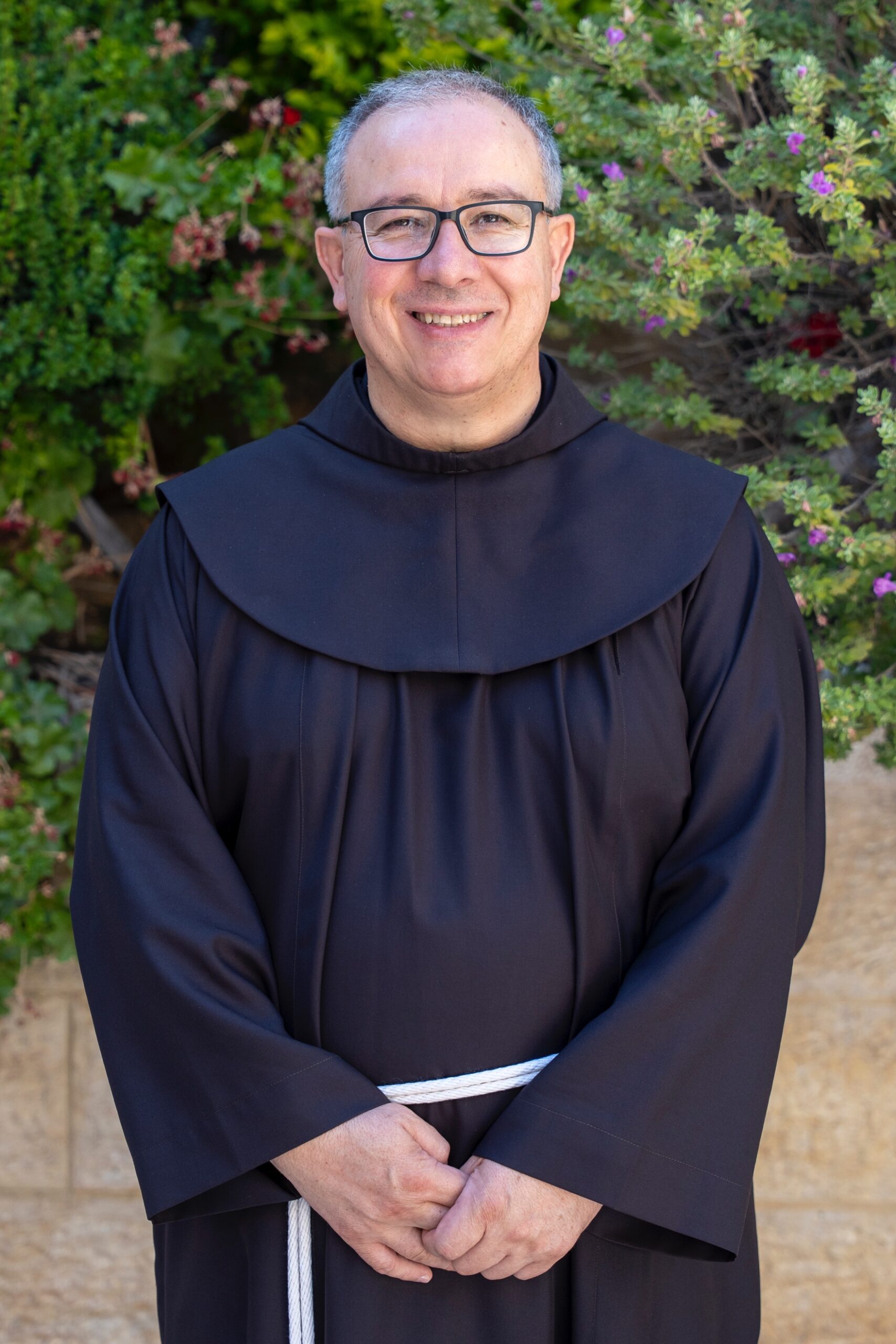
The Vicar of the Holy Land is part of the Custodial Curia.
He supports around the role of the Custos and, in his absence, presides over ceremonies and responsibilities that would be granted to the latter.
If the role of the Custos becomes vacant, it is the Vicar who, within 15 days, calls together the Discretorium Custodial so as to proceed with the election of a new Custos.

The General Secretary of the Custody is a member of the Curia. He is not the private secretary of the Custos: this position is currently held by a lay person. He is, above all, at the service of all the mechanisms of the Custody, including, in the first place, the Discretorium. He prepares the agenda of the meetings of the Discretorium, subsequently drawing up the minutes and ensuring the implementation of the decisions that have been taken. He is responsible for all the correspondence of the Custody with the Universal Church, with the local Church of all confessions and rites, with the Franciscan Order and the Commissars of the Holy Land and, in the last place, with all the friars, as required by the service. He is also involved in most of the administrative affairs of the Custody.

The Bursar is elected to be in charge of the financial services of the Custody and to manage expenses and revenue under the direction of the Discretorium and in relation with the Commissars of the Holy Land. He also coordinates the personnel and the Housing and Rental Department which aids local Christians by allocating them housing belonging to the Custody.
